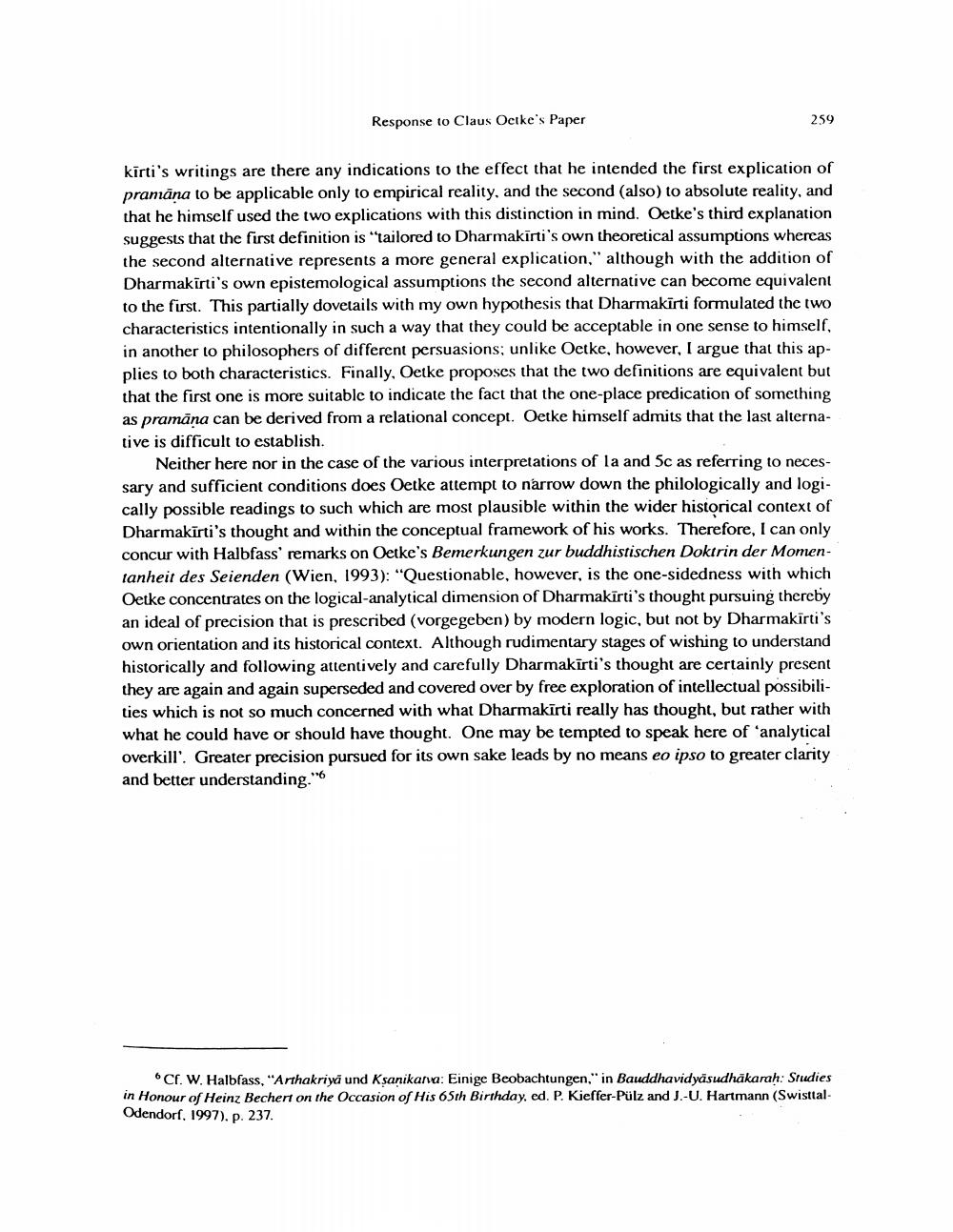Book Title: Response To Claus Obteks Paper Author(s): Eli Franco Publisher: Eli Franco View full book textPage 7
________________ Response to Claus Octke's Paper 259 kirti's writings are there any indications to the effect that he intended the first explication of pranana to be applicable only to empirical reality, and the second (also) to absolute reality, and that he himself used the two explications with this distinction in mind. Oetke's third explanation suggests that the first definition is "tailored to Dharmakirti's own theoretical assumptions whereas the second alternative represents a more general explication," although with the addition of Dharmakiti's own epistemological assumptions the second alternative can become equivalent to the first. This partially dovetails with my own hypothesis that Dharmakirti formulated the two characteristics intentionally in such a way that they could be acceptable in one sense to himself, in another to philosophers of different persuasions; unlike Oetke, however, I argue that this applies to both characteristics. Finally, Oetke proposes that the two definitions are equivalent but that the first one is more suitable to indicate the fact that the one-place predication of something as pramana can be derived from a relational concept. Oetke himself admits that the last alternative is difficult to establish. Neither here nor in the case of the various interpretations of la and 5c as referring to necessary and sufficient conditions does Oetke attempt to narrow down the philologically and logically possible readings to such which are most plausible within the wider historical context of Dharmakirti's thought and within the conceptual framework of his works. Therefore, I can only concur with Halbfass' remarks on Oetke's Bemerkungen zur buddhistischen Doktrin der Momentanheit des Seienden (Wien, 1993): "Questionable, however, is the one-sidedness with which Oetke concentrates on the logical-analytical dimension of Dharmakirti's thought pursuing thereby an ideal of precision that is prescribed (vorgegeben) by modern logic, but not by Dharmakirti's own orientation and its historical context. Although rudimentary stages of wishing to understand historically and following attentively and carefully Dharmakirti's thought are certainly present they are again and again superseded and covered over by free exploration of intellectual possibilities which is not so much concerned with what Dharmakirti really has thought, but rather with what he could have or should have thought. One may be tempted to speak here of 'analytical overkill'. Greater precision pursued for its own sake leads by no means eo ipso to greater clarity and better understanding." Cr. W. Halbfass, "Arthakriya und Ksanikarva: Einige Beobachtungen," in Bauddhavidyasudhakarah: Studies in Honour of Heinz Becher on the Occasion of His 65th Birthday, ed. P. Kieffer-Pulz and J.-U. Hartmann (SwisttalOdendorf, 1997), p. 237.Page Navigation
1 ... 5 6 7
